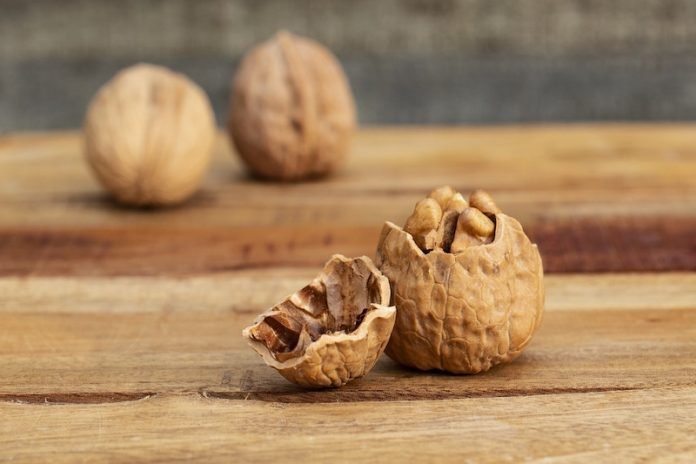
In a new study, researchers found eating walnut may help suppress breast cancer growth and boost survival.
They found that consumption of two ounces of walnuts a day for about two weeks could strongly change gene expression in confirmed breast cancers.
This study is the latest of a series of related studies at Marshall University related to dietary walnut links to tumor growth, survival, and metastasis in breast cancer.
The research was conducted by a team from Marshall University and elsewhere.
Previous research has shown that eating walnuts could slow breast cancer growth and/or reduced the risk of mammary cancer in mice.
In the study, women with breast lumps were recruited and randomized to walnut consuming or control groups.
Immediately following biopsy collection, women in the walnut group began to consume two ounces of walnuts per day until follow-up surgery.
Pathological studies confirmed that lumps were breast cancer in all women who remained in the trial. At surgery, about two weeks after the biopsy, additional specimens were taken from the breast cancers.
Changes in gene expression in the surgical specimen compared to baseline were determined in each individual woman in walnut-consuming and control groups.
RNA sequencing expression profiling revealed that expression of 456 identified genes was strongly changed in the tumor due to walnut consumption.
The team says in humans, walnut consumption could suppress the growth and survival of breast cancers.
Additional research through a larger-scale study would be needed to clinically confirm that walnut consumption actually does reduce the risk of breast cancer or breast cancer recurrence.
The lead author of the study is W. Elaine Hardman, Ph.D., a professor in the Department of Biomedical Sciences at Marshall University.
The study is published in the journal Nutrition Research.
Copyright © 2019 Knowridge Science Report. All rights reserved.



